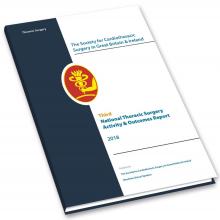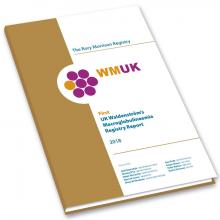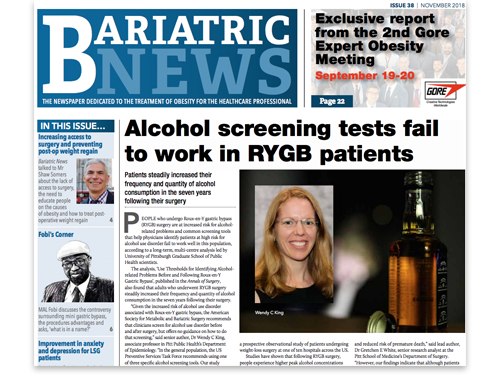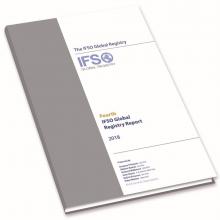
An international team of scientists are investigating a possible curious bi-directional relationship between COVID-19 and diabetes. The researchers, who are part of the CoviDiab project, have hypothesised that the SARS-CoV-2 infection maybe be triggering the onset of diabetes, and they have established a global registry to track occurrence of events and are calling for doctors around the world to contribute reports of cases of new-onset diabetes associated with COVID-19.
The CoviDiab registry is utilising Dendrite Clinical Systems’ innovative “Intellect Web” software to collect new cases of diabetes in patients with COVID-19 to understand the extent and the characteristics of the manifestations of diabetes in patients with COVID-19, and the best strategies for the treatment and monitoring of affected patients, during and after the pandemic. Since the CoviDiab registry was launched a small but growing body of evidence suggests a relationship between new-onset diabetes and COVID-19.
“Over the last few months, we’ve seen more cases of patients that had either developed diabetes during the Covid-19 experience, or shortly after that,” Rubino recently told The Guardian. “We are now starting to think the link is probably true – there is an ability of the virus to cause a malfunctioning of sugar metabolism.”
Despite an association between newly diagnosed diabetes and COVID-19, questions remain regarding causation remain.
It is known SARS-Cov-2 binds to ACE-2 receptors, which are expressed in several key metabolic organs and tissues including the pancreatic β-cells, adipose tissue, small intestine, liver and kidney, CoviDiab researchers stated. Therefore, it is plausible that SARS-Cov-2 could cause multiple co-existing alterations of glucose metabolism that can complicate the pathophysiology of pre-existing diabetes or lead to new mechanisms of disease.
The goal of the registry is to establish the extent and phenotype of new-onset diabetes that is defined by hyperglycaemia, confirmed Covid-19, a negative history of diabetes, and a history of a normal glycated haemoglobin level. The registry, which will be expanded to include patients with pre-existing diabetes who present with severe acute metabolic disturbance, may also be used to investigate the epidemiologic features and pathogenesis of Covid-19–related diabetes and to gain clues regarding appropriate care for patients during and after the course of Covid-19.
The researchers indicated they plan to begin a preliminary analysis once the registry reaches 200 case reports.
To read additional news articles reporting on the CoviDiab project, please see:
For more information on the CoviDiab project, please click here
 Dendrite Clinical Systems and the Society for Cardiothoracic surgery (SCTS) have published a new report that demonstrates importance collecting and analysing data from thoracic surgery. The report states that a large increase in thoracoscopic (VATS) resections is responsible for most of the recent increase in lung cancer surgery, rising from 749 cases in 2010-2011 to 2,753 in 2014-2015, an increase of more than 3.5 times.
Dendrite Clinical Systems and the Society for Cardiothoracic surgery (SCTS) have published a new report that demonstrates importance collecting and analysing data from thoracic surgery. The report states that a large increase in thoracoscopic (VATS) resections is responsible for most of the recent increase in lung cancer surgery, rising from 749 cases in 2010-2011 to 2,753 in 2014-2015, an increase of more than 3.5 times. Dendrite Clinical Systems is to install its Intellect System to track outcomes of cardiothoracic surgery at St George’s Hospital, Tooting, London, UK. The company’s data capture software currently supports approximately 85% of cardiac units in the UK.
Dendrite Clinical Systems is to install its Intellect System to track outcomes of cardiothoracic surgery at St George’s Hospital, Tooting, London, UK. The company’s data capture software currently supports approximately 85% of cardiac units in the UK.  Dendrite Clinical Systems and Waldenström’s Macroglobulinaemia United Kingdom Charity have published the First UK Waldenström’s Macroglobulinaemia Registry Report 2018 – the first report of its kind in the world.
Dendrite Clinical Systems and Waldenström’s Macroglobulinaemia United Kingdom Charity have published the First UK Waldenström’s Macroglobulinaemia Registry Report 2018 – the first report of its kind in the world.  Dendrite Clinical Systems, the publisher of Bariatric News, is pleased to announce issue 38 of the newspaper is now available to view/download. The newspaper reports on research, technology, events and policy in the bariatric specialty, the latest clinical studies, policy changes and product news, the latest meetings and events, interviews prominent bariatric experts, and host debates between specialists on controversial topics.
Dendrite Clinical Systems, the publisher of Bariatric News, is pleased to announce issue 38 of the newspaper is now available to view/download. The newspaper reports on research, technology, events and policy in the bariatric specialty, the latest clinical studies, policy changes and product news, the latest meetings and events, interviews prominent bariatric experts, and host debates between specialists on controversial topics. Dendrite Clinical Systems and the British Society for Allergy & Clinical Immunology (BSACI) have launched the British Registry for Immunotherapy (BRIT), a web-based patient registry that records immunotherapy treatment of patients under the care of BSACI consultants practicing in the UK.
Dendrite Clinical Systems and the British Society for Allergy & Clinical Immunology (BSACI) have launched the British Registry for Immunotherapy (BRIT), a web-based patient registry that records immunotherapy treatment of patients under the care of BSACI consultants practicing in the UK. Dendrite Clinical Systems, under the auspices of the International Federation for the Surgery of Obesity and Metabolic Disorders (IFSO), has published the Fourth IFSO Global Registry Report (2018) at the federation’s XXIII World Congress in Dubai, UAE. The latest report features data from more than 50 countries on over 394,000 operations including baseline obesity-related disease, operation types, operative outcomes and disease status after bariatric/metabolic surgery.
Dendrite Clinical Systems, under the auspices of the International Federation for the Surgery of Obesity and Metabolic Disorders (IFSO), has published the Fourth IFSO Global Registry Report (2018) at the federation’s XXIII World Congress in Dubai, UAE. The latest report features data from more than 50 countries on over 394,000 operations including baseline obesity-related disease, operation types, operative outcomes and disease status after bariatric/metabolic surgery.


